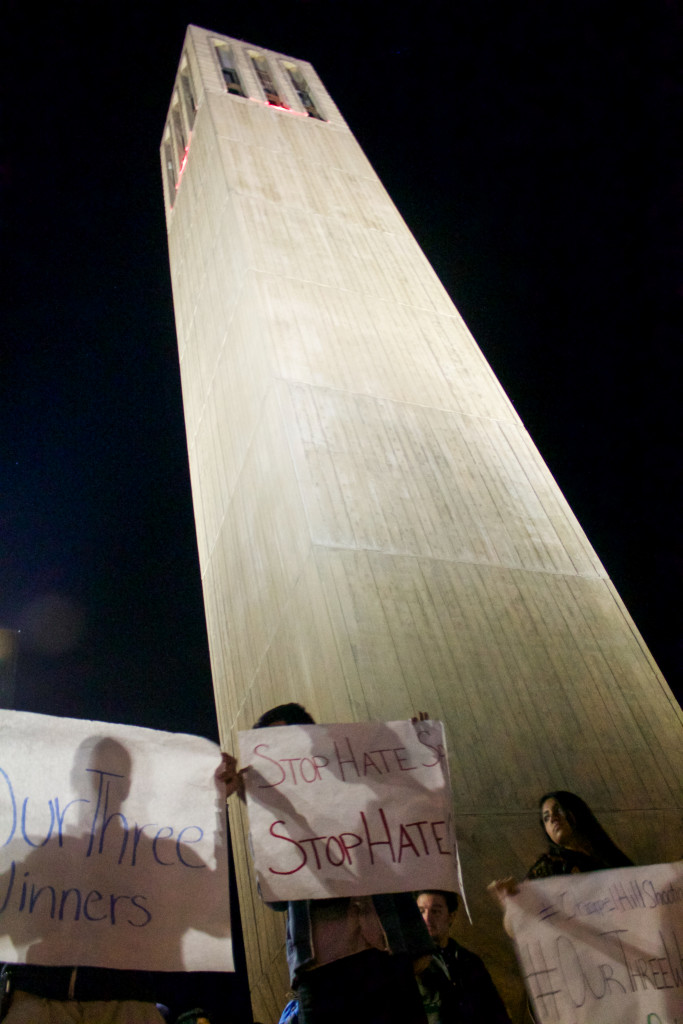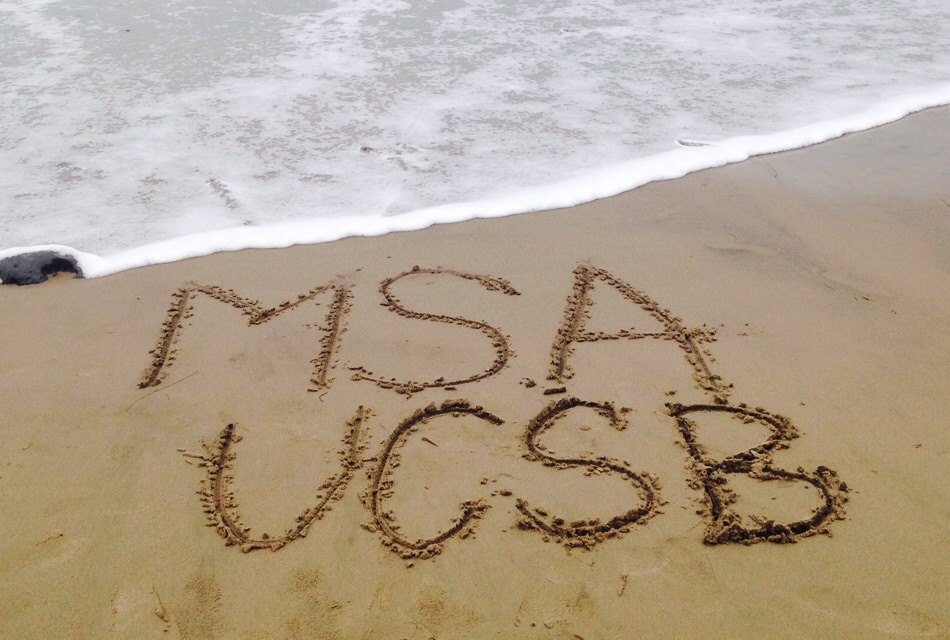MSA Concerned About Homeland Security CVE Programs Negatively Affecting Muslim Community
The Muslim Student Association West released a public statement on Saturday stating that Muslim Student Associations at universities across California are against the Department of Homeland Security’s Countering Violent Extremism (CVE) programs.
The White House held a three-day CVE summit last week to discuss the plan the U.S. and its allies have forged to prevent violent behavior incited by extremist ideology. The summit concluded with a U.S. plan to pilot CVE programs in Los Angeles, Boston and Minneapolis, and as a result Muslim Student Associations at universities across the West Coast have sent a statement of concern to the Islamic Shura Council of Southern California voicing concerned that the programs may have negative effects on the Muslim community.
Associate Professor of Religious Studies Juan Campo said federal counter-terrorism programs need to avoid targeting one specific group while attempting to solve violent extremism.
“I do understand why the Muslim Student Association would think counter-terrorist programs would be directed against Muslims,” Campo said. “Initiatives like these need to be careful not to alienate a group at home.”
Campo said a better counter-terrorism tactic would be to look at how the trajectory of U.S. foreign policy actions have affected civilian sentiment about America in the Middle East.
“The best counter-terrorism approach is to look at foreign policy and the impact it’s having on civilian populations,” Campo said.

UCSB MSA holds a candlelight vigil for the Muslim students killed in Chapel Hill, North Caorlina. Paris Cullen/Daily Nexus
UCSB Muslim Student Association President and fourth-year biochemistry and molecular biology double major Yasmin Sallak said she is concerned by the Department of Homeland Security’s use of radicalization theory to target individuals of Middle Eastern descent.
“Just using that theory as part of the program is problematic … they are trying to use correlation as cause and effect for … violent extremism,” Sallak said. “So somebody who … wanted to be more religious, that could be seen as a symptom of becoming a violent extremist.”
Sallak said that while she recognizes the necessity to combat violent extremists, the Department of Homeland Security’s new program comes to the detriment of many Muslim Americans who have been targets of Islamophobia since the Sept. 11 attacks.
“This debate is important within the Muslim community,” Sallak said. “Also, people outside the Muslim community should just keep in mind that even though the name of the program kind of sounds good, like we all want to counter violent extremism … it’s just targeting one community and defining us as potential American terrorists.”
According to the Countering Violent Extremism Training Guidance and Best Practices guide put out by the Office of Civil Rights and Civil Liberties under the Department of Homeland Security, a major goal of these programs is to be sensitive to constitutional values.
“[The training program should be reviewed to] ensure that it uses examples to demonstrate that terrorists and violent extremists vary in ethnicity, race, gender and religion,” the guide states.
Religious Studies Department Chair and professor of Islam in the West and Law & Religion Kathleen Moore said the goal set out by the Office of Civil Rights and Civil Liberties is commendable, but that existing biases must be addressed.
“I think the goal is laudable,” Moore said. “I think it’s a nice aspiration but the question is how to arrive at that place where we can sort of neutralize the negative stereotypes.”
Moore also said critics of the White House Countering Violent Extremism summit are right to be concerned because the program perpetuates stereotypes some Americans hold about Islam.
“It gives bad press to Islam because it continues to associate extremist violence with Islam,” Moore said.
Muslim Student Association West Public Relations Director Tahmina Achekzai said her concern about the Countering Violent Extremism programs is that conversations about the initiative have been held behind closed doors.
“An equally major concern is the lack of transparency behind developing the program and what it entails,” Achekzai said in an email.

The Muslim Students Association held a candlelight vigil in Storke Plaza Thursday night to remember the three Muslim students recently killed at University of North Carolina, Chapel Hill. Paris Cullen/Daily Nexus
Achekzai also said she hopes students understand Muslim Student Association’s concerns and will join students to advocate for an end to government programs that target specific groups.
“Allyship and understanding between different communities is always important,” Achekzai said in the email. “We hope that students in outside organizations … will understand our concerns and work with us to prevent the targeting and stigmatization of one specific population.”

















On a day when three U.S. Muslims were arrested for attempting to join ISIS, just days after ISIS kidnapped more than 100 Christians, this article is an example of tone deaf journalism. Where within it is any attempt to reflect the views of anyone other than opponents of U.S. policy? If this was an editorial, it would be expected to be one-sided, but as a news piece? As a graduate of UCSB nearly 40 years ago, an era in which Palestinians’ supporters and Israeli supporters would argue in these pages, I am struck by the transition in Nexus coverage. Now,… Read more »
“Associate Professor of Religious Studies Juan Campo said federal counter-terrorism programs need to avoid targeting one specific group while attempting to solve violent extremism.”
++
Leave it up to a professor to say something like this. Mr. Campo, a government’s charge is to protect its citizens. If a specific group has a proven record of attempting to hurt a government’s citizens then why would you implore them to ignore this reality?
“Campo said a better counter-terrorism tactic would be to look at how the trajectory of U.S. foreign policy actions have affected civilian sentiment about America in the Middle East.”
++
Is this why Muslims are killing Buddhists in Thailand?
Is this why Muslims are killing Russians in southern Russia?
Is this why Muslims are killing Chinese in NW China?
Is this why Muslims are killing Hindus in Pakistan?
Is this why Muslim committed genocide against Animists in Sudan?
++
Your logic, Mr. Campo, does not hold water.
“Sallak said that while she recognizes the necessity to combat violent extremists, the Department of Homeland Security’s new program comes to the detriment of many Muslim Americans who have been targets of Islamophobia since the Sept. 11 attacks.” ++ If you have nothing to hide than you have nothing to fear Ms, Sallak. ++ The truth is, though, that a preponderance of terrorist attacks committed here and across the globe are committed by devout Muslims and for the DHS to ignore this would mean they are not doing their job. ++ Your efforts should be devoted to reaching out to… Read more »
People come to this country to take advantage of our infrastructure and ultimately chase money – that is it. There is no romantic notion of a “better life” – it boils down to taking advantage of the system. I will never understand why these immigrants feel the audacity to complain at every turn in which they feel marginalized. NEWS FLASH – everyone feels the strain. The fact is – You are not American and will never be american. This melting pot idea is the reason we are in such an effed up place. America has no real national identity and… Read more »
Uh America has been a melting pot since the day we stole it. Your little hillbilly neighborhood is not representative of most of the country, where people of all cultures get along just fine. Pull your dick out of your sister and go on a road trip.
Typical bitch ass liberal response. I live in SB – graduated from UCSB – if you think the white folks and latin folks get along here I guess you havent been. I Lived in both the netherlands and italy. Both countries have a strong sense of national pride and view outsiders in a much more negative light than natives. Racism runs rampant in everyday life – and not saying its right but it is normal.
We stole america? haha miss me with that nonsense. Troll on troll boy.
Hmm I wonder why Latinos and white people don’t get along here. It’s definitely THEIR fault though. It couldn’t possibly be because they’re essentially your servants and you still treat them like they don’t belong here.
European countries are more insular because they’ve been developing their cultures for thousands of years. America was built out of parts of all of them. Are you sure you graduated from college?